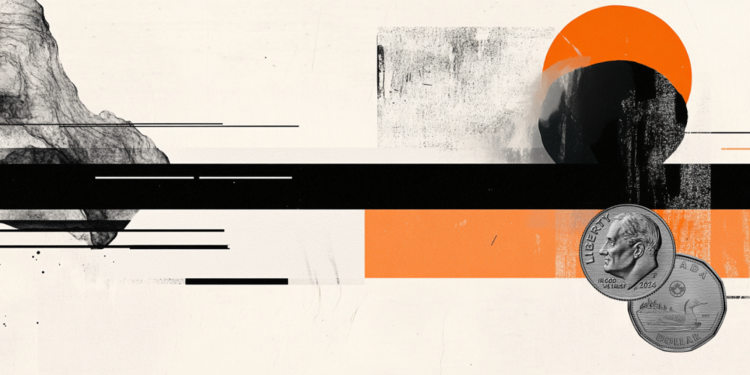It seems impossible not to love cheese, a food of indisputable popularity. In the US alone, Americans consumed more than 38 kilograms of cheese per capita in 2020 alone, according to data from the US Department of Agriculture.
Now, if eating cheese is healthy, that’s another story.
Rich in protein, calcium, vitamins and essential amino acids, cheese is also a calorie-packed food and may have fat and sodium to spare.
“If you like cheese, it can be a good source of protein. It can be a good source of calcium. It’s good to eat without exaggeration, because you can quickly accumulate a lot of calories,” said Lourdes Castro Mortillaro, nutritionist and director of the NYU Food Lab, to CNN.
The protein found in cheese is a good alternative to proteins derived from meat, as it is of animal origin and contains all the essential amino acids that the body needs, but cannot synthesize on its own, according to the nutritionist.
Therefore, cheese is considered a complete protein.
However, as with everything related to nutrition, it is the general balance of what you eat on a daily basis that should guide the amount of cheese you consume, explained Castro Mortillaro.
“You have to really look at what else is going on in your life. And what else are you putting on your plate”, he advised. “You don’t need to have large amounts to get the benefits of cheese.”
And which cheese is the healthiest? The answer depends on your body and your nutritional needs, but here are some tips from the experts.
champion ricotta
Both Castro Mortillaro and Emily Martorano, a nutritionist specializing in weight management for the NYU Langone program, agree that ricotta is a health winner.
The name of the cheese can be translated as “cooked again” and Castro Mortillaro explained that authentic ricotta cheese is produced by treating the whey that is left over after the coagulation of milk (such as sheep’s milk) to produce cheese (such as pecorino) .
Ricotta has a high concentration of whey protein (or whey protein), which is easily absorbed by the body.
“Whey protein is one of the most absorbable forms of protein and contains a wide range of amino acids,” explained Martorano. “Therefore, it is the best bet for anyone looking to gain muscle, gain strength and, at the same time, lose fat and weight.”
Castro Mortillaro also pointed out the potential benefits of the ricotta’s sustainability, as it takes advantage of leftover by-products from the production of cheese.
“It’s a very Tuscan method,” she added.
Hard cheeses (with caution)
The director of the NUY Food Lab believes that harder cheeses such as Parmesan, Pecorino or gouda are also among the healthiest options, when consumed in moderation.
Because they contain less water and are more concentrated, “hard cheeses have more calcium and you’ll probably get full on smaller amounts, so you tend not to overeat,” he said.
However, because they are more concentrated, harder cheeses can also have a higher sodium content than softer ones.
“If you’re hypertensive, need to control your sodium intake or have kidney problems, it’s probably better to go for a softer cheese,” said Castro Mortillaro.
Best cheese for weight control
If you’re controlling your weight, protein is the heart of the matter. It keeps you full longer and helps with muscle gain.
According to Martorano, cheeses rich in protein and low in fat are great options for those who want to control their weight.
A good way to determine which cheeses fall into this category is to consider a 1:10 ratio of protein to calories, according to Martorano.
“For every 100 calories, there should be at least ten grams of protein, and that will tell you if cheese is a good source of protein and, in turn, a healthier cheese,” he explained.
Some cheeses she recommended based on this are light Swiss cheese, light cheddar cheese, and ricotta cheese.
cheeses to avoid
If possible, avoid highly processed products, including tinned cheese, individually wrapped slices, and those blocks that don’t even need to be refrigerated.
“Cream cheese spread, American cheese and even cream cheese provide minimal protein for a much higher fat and sodium content,” said Martorano.
Some of the processed cheese varieties are not even technically classified as “cheese” by the FDA, the US Food and Drug Administration, but as “Pasteurized Cheese Processed Foods” or “Pasteurized Processed Cheese Products”, depending on the percentage of real cheese that they contain along with other ingredients.
“Fresh is always better,” says Martorano.
Dietary trends come and go, and Castro Mortillaro remembers the “fat-free phase” of the 1990s and early 2000s.
“We had non-fat cheese and mayonnaise, highly processed products of this type,” he recalled.
NYU Food’s director thinks that unless your specific goal is to lose weight, fat cheese should have a place in your diet.
“It’s better to have a smaller amount of something that’s just healthier, if you’re in that neutral category, and enjoy it,” he advised.
Some cheeses can also be a good source of probiotics, according to Martorano, who pointed out feta, goat cheese and raw or unpasteurized milk cheese as excellent options.
Craft cheese varieties, however, can cost a lot of money.
“Not everyone can buy the most sophisticated cheeses. When it comes to industrialized cheeses, it’s okay to consume them in moderation”, said the nutritionist.
moderation in all things
It is better to think of cheese as a kind of flavoring agent than as a meal itself, according to Martorano and Castro Mortillaro.
“Instead of using cheese as the main source of nutrients, it should be used as a supporting role,” Martorano told CNN.
“By combining a certain cheese with another food, such as vegetables or whole grains, we have a more satisfying and filling meal.”
The ricotta for breakfast, combined with oatmeal and fruit, can be a healthy start to the day, suggested Martorano.
An afternoon snack of Swiss cheese and some greens or veggies, or a wholemeal biscuit, would also be a good idea.
In the end, unless there are specific concerns, the healthiest cheese is your favorite, enjoyed in moderation as the occasional delicious treat that it should be.
“In short, if you have a favorite cheese and want to consume it in moderation, do so. Therefore, always choose what you like the most”, concluded the specialist.
(Translated text. Click here to read the original in English).
Reference: CNN Brasil







